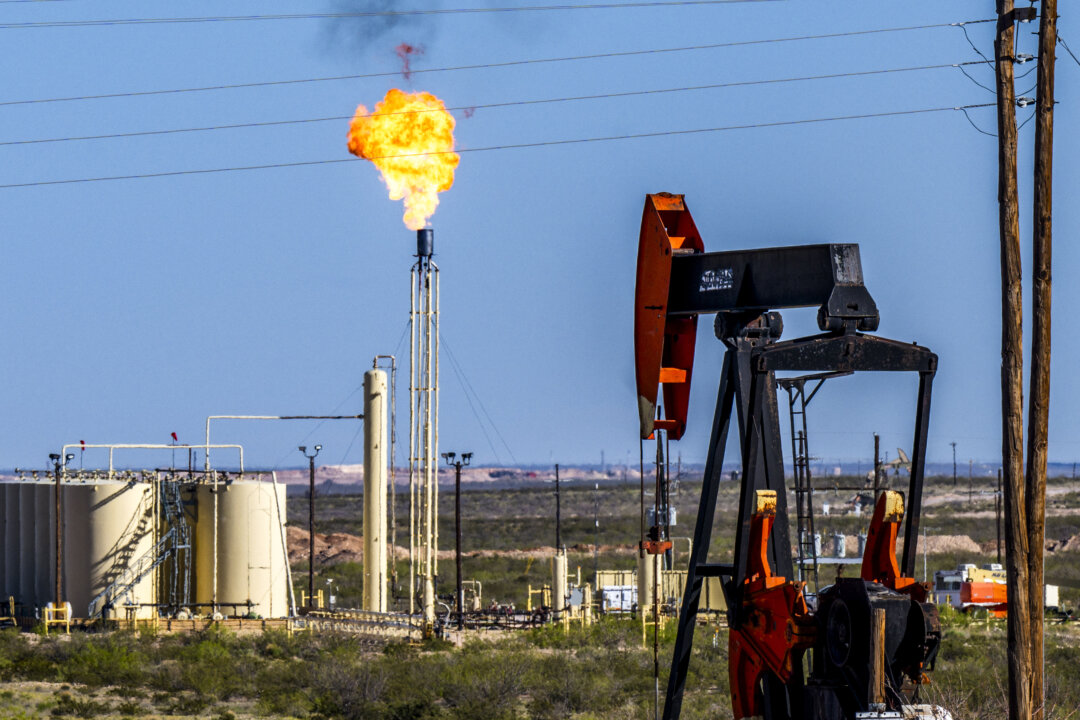Trump had vowed throughout his presidential campaign to allow energy companies to drill more for oil and gas to boost output and lower prices for consumers.
Despite President-elect Donald Trump’s vow to drill more for oil and gas, an executive with oil giant Exxon said that petroleum producers are unlikely to radically increase production as companies remained focused on capital discipline.
“We’re not going to see anybody in ‘drill, baby, drill’ mode,” Liam Mallon, head of Exxon’s upstream division, told the Energy Intelligence Forum conference in London on Tuesday, quoting Trump’s election promise to expand drilling once in office. “A radical change [in production] is unlikely because the vast majority, if not everybody, is focused on the economics of what they’re doing.”
Mallon said that “maintaining the discipline, driving the quality, driving the information, will naturally limit that growth rate.”
But Mallon said that the federal relaxing of land permitting processing could provide a short-term boost to oil and gas production.
Exxon earlier this year completed the $60 billion acquisition of smaller U.S. rival Pioneer Natural Resources, consolidating its position as the largest shale producer. Exxon expects to grow oil production in the Permian shale basin to more than 2 million barrels per day, Mallon said.
“We see growth beyond the 2 million probably for a couple of years but not at that continuous same rate … certainly up to 2030 we see it growing,” he told the conference.
Throughout his 2024 presidential campaign, Trump vowed to allow energy companies to drill more for oil and natural gas to boost output and lower prices for consumers. During rallies and in advertisements, the president-elect used the slogan “drill, baby, drill” to refer to his energy plan while in office.
The United States has become the world’s top oil producer following a surge in shale oil production, pumping more than 13 million barrels per day earlier this year. It is also the world’s leading natural gas producer.
Chevron officials have said that they will see their peak capital expenditure in the Permian soon. Mike Wirth, the company’s chief executive, said in a quarterly earnings call on Nov. 2 that “this year is probably going to be the peak in Permian CapEx,” according to a transcript of his call.
In his campaign speech at Madison Square Garden in late October, Trump asserted that his policies would “cut your energy prices in half,” adding that Americans would see a 50 percent reduction in their costs within a year of Inauguration Day.
Days after winning the election, Trump tapped North Dakota Gov. Doug Burgum to oversee the Department of Interior, which oversees land permitting for drilling. Burgum will also oversee a newly created National Energy Council to bolster U.S. energy production.
“This Council will oversee the path to U.S. ENERGY DOMINANCE by cutting red tape, enhancing private sector investments across all sectors of the Economy, and by focusing on INNOVATION over longstanding, but totally unnecessary, regulation,” Trump said in his Nov. 15 statement announcing Burgum as his selection for the position.
The president-elect also said in his statement that the “radical left” is engaging in a war on U.S. energy in the guise of climate action.
Separately, Trump announced this month he would nominate fracking services executive Chris Wright to head the Department of Energy, signaling that he would ramp up drilling for oil and gas during his term.
“Chris has been a leading technologist and entrepreneur in Energy. He has worked in Nuclear, Solar, Geothermal, and Oil and Gas,” Trump wrote in a statement announcing his selection of Wright for the role.
Fracking, or hydraulic fracturing, accounts for the majority of America’s domestic gas and oil production, according to the Energy Department’s figures, which show that about 95 percent of new wells use the process.
Reuters contributed to this report.

